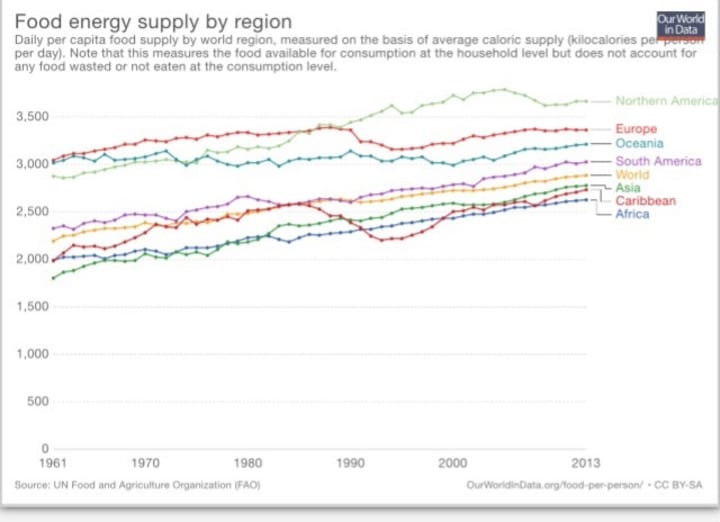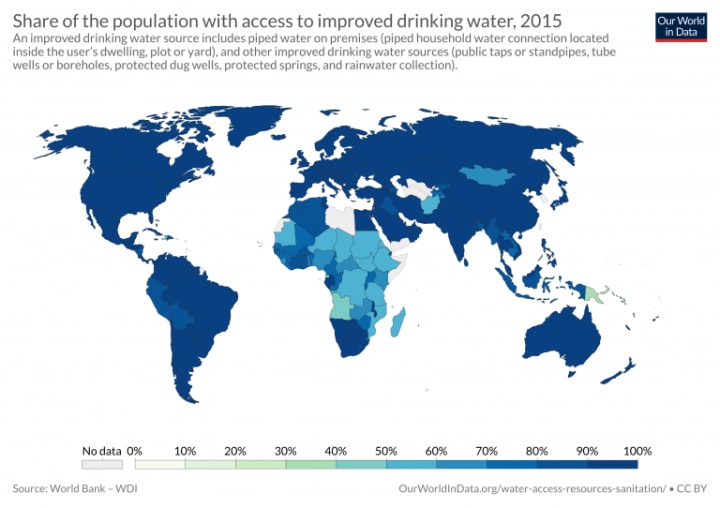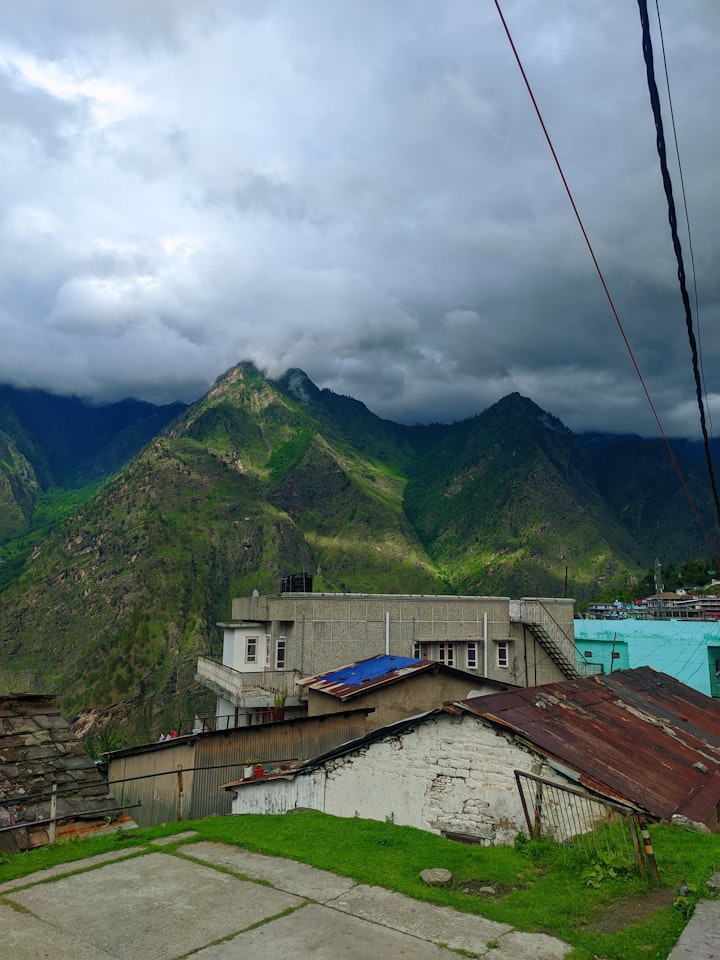The Population Bomb... Defused?
An examination of just how much of a threat the world is under from a seemingly endless growth of humanity

The idea that the world is overcrowded seems almost commonplace in the media and literature we consume on a daily basis. Countless books and apocalyptic projections surrounding the catastrophe of a seeming overabundance of humans in a limited world have caught the attention of millions and sold an equally sizable number of books including such successes as The Population Bomb, Countdown, and Life on the Brink. The story these books tell are all the same and all rooted in a certain element of truth; our numbers have grown exponentially and unfortunately the world has not. The issues harped on in these books all stem from one problem, overpopulation. Overpopulation is to many a frightening word, and the predictions made by these books authors fit the word "frightening" very well, they speak of famine, drought, disease, vast inequality and mass extinction on a global level. Thankfully none of these predictions have come true... yet. But one can't be too careful, so sit back, relax, maybe light some candles and draw a bath, while I do my best to examine the topic of human overpopulation in the world in what I hope is an easy to understand, if not so romantic, scientific analyses of the issue.
To begin, overpopulation is an ecological issue. And in ecology, overpopulation has an actual definition.
Overpopulation is defined as the point where a population’s consumption overtakes the carrying capacity of their habitat.
So to answer this question scientifically, without purely opinion and speculation, we just have to find the earth’s consumption, and see if it is below our carrying capacity…
This of course is more easily said than done. Exact numbers are hard to come by, and even the question of what proper parameters we should use to determine carrying capacity is a hard one to answer. Humans need food, shelter, and freshwater to survive. So let’s use calories consumed vs. produced, how much land is used vs. available, and how much freshwater is available vs. utilized as our parameters.
1. Calories

The average human needs about 2250 calories per day in order to maintain a healthy weight, while practicing a mediocre amount of exercise. Women need on average 1600–2400 calories a day and men between 2000–3000. This averages out to about 2250/day per person. That being said, some people eat more food than they need or burn more calories than the average person, and so the average amount of calories consumed per capita in the whole world is 2780 calories per person per day. With a current world population of 7.7 billion people that means that approximately 21.4 trillion calories globally per day. How does that match up with what we produce? Well a low ball estimate, already factoring in food that spoils and is thrown out, puts the average calories produced at a little over 2800 calories per capita in the world. Remember that doesn’t account for all food the doesn’t make it from the field to your plate. Plenty of food is wasted or thrown out before it even has the chance to hit the grocery store.
2. Shelter

Many people here in the other answers have been arguing back and forth that there is plenty of lands to be utilized, and that the entire world population could live densely in the United States, but of course, that would make the logistics of production pretty much impossible. That doesn’t mean that there isn’t enough space for people to live on Earth, however. In 2020 the global population density is almost 15 people per square kilometer. That may seem high but thankfully we do not all have to be equally spread out across the globe. Plenty of people are perfectly content to live in condensed cities where the population density can reach levels as high as 40,000 people per square kilometer and still be sanitary, and comfortable for the people living there. This allows for land specialization away from the city that increases the efficiency of farming.
3. Water

Water is perhaps the most contentious issue in this equation. Freshwater is hard to come by, and as of 2020 9% of the world’s population does not have access to potable water. This is not all bad news- if we look at the trend, things are actually improving as we progress forward in time, so much so that in 1990, almost a quarter of the world’s population was without clean drinking water.
New technologies such as drip irrigation and reverse osmosis are allowing us to efficiently and effectively increase our water production while decreasing our water use- especially in the field of agriculture which uses about half of our global water consumption.
Those three metrics show that at least for the time being, we are not on track for a “population bomb” that is going to wipe out our species. On the contrary, we are actually doing quite well, and metrics such as global poverty, child mortality, and lifespan among developing countries have all been improving for the last 50 years. Using current projections by the UN we are estimated to top out our population at around 11 billion. We likely won’t go any higher than this for a couple of reasons, mainly that wealthier countries tend to actually have lower birth rates with countries such as Germany, Japan, and soon Canada being prime examples.
While the threat in the books selling apocalyptic tales of humans running the Earth dry sound appealing at first glance, it seems they are ignoring one factor which which has propelled our species from a collection of hunters and gathers situated primarily across the African plains, to a space faring collective that is in the middle of attempting to put the first man and women on mars. That factor is human ingenuity. So long as a the average person produces more in their lifetime than they consume, and contribute to their community and the world a collection of ideas, invention, art, and culture, we can work towards increasing the quality of life for every child that is born today, and will look forward to an increasingly long and meaningful lifespan that will last perhaps a century into the future.
So while you may be hearing headlines proclaiming the end of the world, telling you that you shouldn't have kids lest you damn them to a short life of misery, keep in mind that the world really isn’t as close to being over-populated as you might think. We have large disparities resulting in starvation or death from lack of water or shelter, but the solution to this is increasing stability and wealth in our poorest nations. Let's first figure out typhoid fever, malaria, poor sanitation, regional battles and the threat of nuclear war before we worry about overpopulation as an issue.
About the Creator
Jacob Hood
I love science so I went to school for it.
I have an interest in business, so I'm starting my own company.
I enjoy writing so I split my time between here and my Quora account.
You like my articles, so you clicked my profile :)






Comments
There are no comments for this story
Be the first to respond and start the conversation.